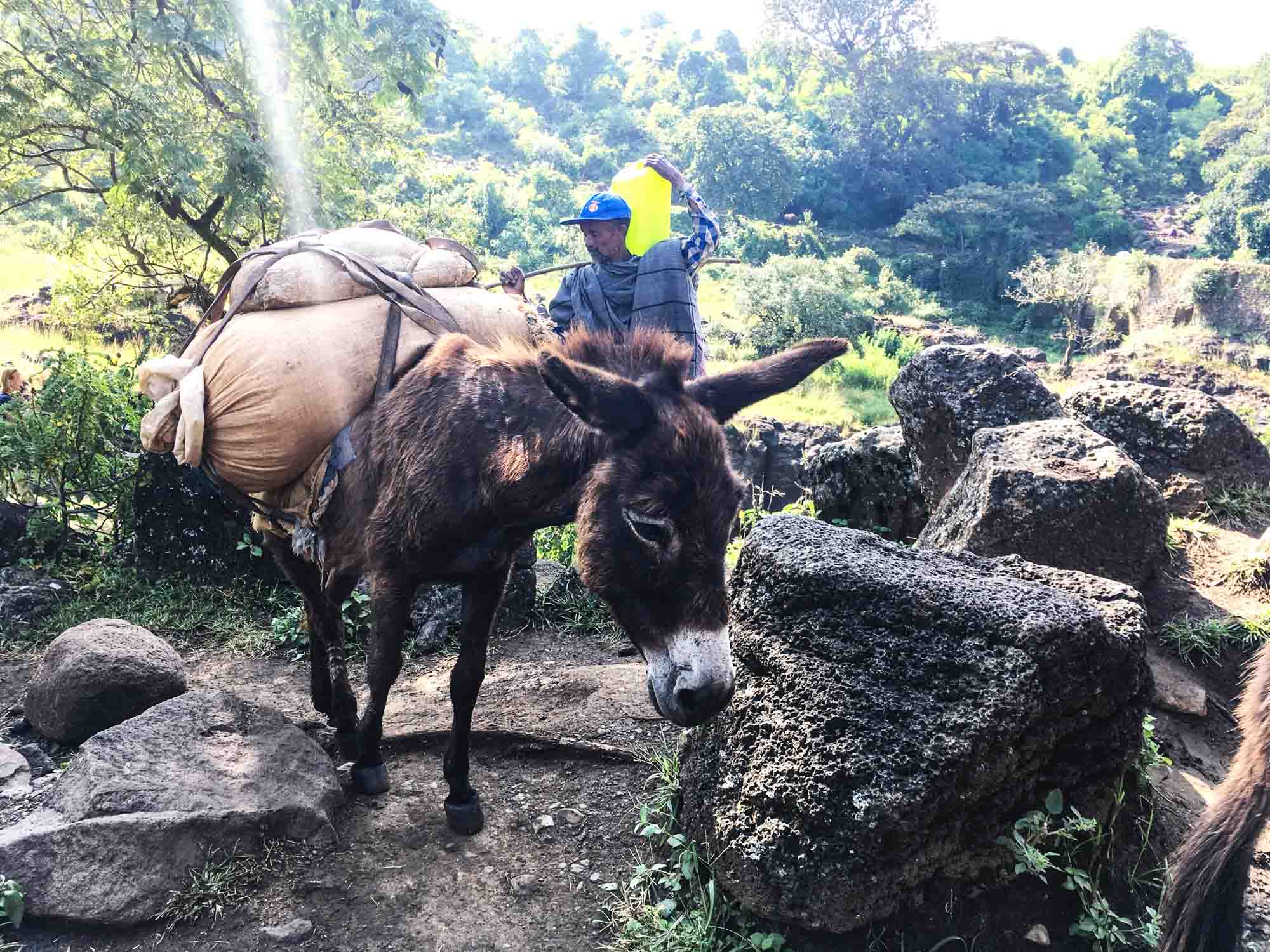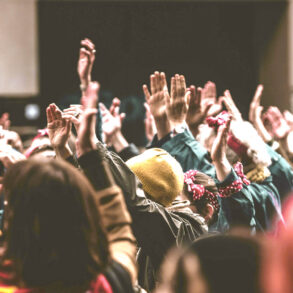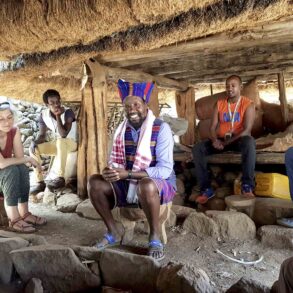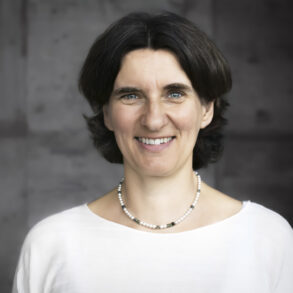Civil war has been raging in Ethiopia for nearly two years. It is not easy to pinpoint the blame for the suffering of the civilian population, but life there is getting thinner and thinner. Two main causes are entanglements over political power and identification with one’s own ethnicity.
Five years ago, the Oromo protests were still in the foreground, causing states of emergency in which people died – we were not allowed to leave our hotel. At that time, a local acquaintance told me, «The problems of our country can only be solved by a civil war.» I was shocked. When I asked Amharic farmers in the Semien Mountains about this, they replied, «God will direct it, we can’t do anything. We have to wait and see.»
The current, unofficially elected Prime Minister, Abiy Ahmed Ali (half Oromo, half Amhara), received the Nobel Peace Prize in October 2019. My acquaintances were overjoyed, at least. «He’s the right one. He will unite the country,» I heard and celebrated with them.

Ethiopia is a multi-ethnic country, where over 80 different languages are spoken. The largest population group is the Oromo with approximately 40 million people. Then follow the Amharas with 25 million, and bringing up the rear are the small ethnic groups in the South and West of the country, some of which have only 5,000 members. The country’s 2,000-year imperial history and tradition ended with the deposition and likely assassination of Haile Selassie by the Derg regime in 1974. The Derg Military Council then took power until 1989. Liberation from the megalomaniac Mengistu Haile Mariam – who still lives his life with Robert Mugabe in Zimbabwe and was never called to accountability – was achieved through a union of rebels of different ethnicities. It was largely promoted by the Tigray People’s Liberation Front (TPLF) and Eritrean fighters. The TPLF’s charismatic leader Meles Zenawi, one of four million Tigray, gave up medical school to liberate his country and became the political leader of the Republic of Ethiopia for the next 23 years (until he died in 2012). He even reformed the country’s school system by allowing all ‹Ethiopian› people to speak their own language. Since then, Amharic, as a centuries-old lingua franca, has gradually been replaced by English. And yes: Tigray is the state that has the best roads, the best agriculture, and the best water and electricity supply. The old Abyssinia, which also included Eritrea and was only expanded and ‹united› to today’s Ethiopian state borders by Emperor Menelik II at the beginning of the 20th century, had its origins in Tigray. There, in Axum, is also the ‹Vatikan› of the Ethiopian Orthodox Church. There, next to the necropolises of the Axumite emperors, stands the house of ‹the› Ark of the Covenant, upon which all political and ecclesiastical power in the country was based until 1974.
The further you move from the modern cities to the outskirts of the country, the fewer people identify as Ethiopians. In the far South, 1,500 kilometers from Addis Ababa, members of the Mursi, Benna, Hamer, or Nyangatom could vote, but they feel no connection to a nation-state. And even the larger peoples like Wolayta, Sidama, Konso, or Gurage think and feel in their own territories and traditions. Some have been striving for autonomy for a long time. The Sidama, with three million people, passed a referendum in 2019 to introduce their own administration, independently of Addis. They are now autonomous, but whether they can build an economic area in their small province on their own remains to be seen. When asked what ethnic group they belong to, people rarely reply with ‹I am Ethiopian›.
Since the beginning of the civil war a year ago, I have received news from friends who are fleeing from the Tigrin troops advancing from the North and no longer know whether their house is actually still standing. Or from friends from Tigray who write to me about how bad it is there. Tigran power wants to Addis Ababa and has arrived in the state of Amhara. And Abiy, honored for his peace efforts with Eritrea, ordered air strikes on Tigrin rebels as early as November 2020. The airports of Axum, Lalibela, and Gondar have been destroyed. People are massacred on both sides, and Amharic women are raped by Tigrin soldiers in revenge. Eritrea as a ‹former› enemy, with whom Abiy actually made peace, has joined the Tigrin rebels. Dictator Afewerki, whose 30-year-old regime is making Eritreans flee to Europe, seems to be hoping for an advantage. It’s about political power at the expense of the civilian population, as always. Abiy recently called on all men to decide whether to join the fight or give up their weapons.
European media speak of ‹genocide›, although you can no longer say which people are being murdered. You can only answer: the Ethiopian people. In this suffering of civil society, the need for an agreement, an awareness of ‹We are all Ethiopians› is absurdly evident.
I would like to call out to my friends: «Raise your voice, show what you don’t want.» And I wonder why they don’t take to the streets for peace. An Ethiopian woman I met by chance on the train the other day and with whom I started talking said that the Ethiopian community had organized a demonstration for peace in Berlin in two days. She looked very critically at Abiy and said he was an Oromo, anyway. But from her distance, she also saw the madness of it all, was desperate about the suffering, and had no answer as to what had to happen now.
Is the dream of a nation-state unrealistic? Is it necessary, as in Yugoslavia, to be divided into small, individual republics? I do not know, either.
I traveled through Ethiopia for six years and learned to love it. I have met people of all races who were sincere, kindhearted, deeply believing, and looking for opportunities for a better life. The years before the civil war brought an upswing. The tourism sector, especially, created greater general awareness of Ethiopia and its long history. Chinese, Turkish, Indian, Dutch, German and British firms settled there to help develop the economy. Regardless of the fact that this development naturally has to be questioned, the civil war is throwing the whole country back decades. I once asked my driver what he thought we could learn from Ethiopia. He replied, disturbed: «Nothing, we only have nature.» But three days later he came back to it again, reflecting: «I think we are more social than you. We help each other more.» They are and they do. Perhaps so far only related to their ethnic group and family. But there is also great potential in this, which could be countered by the egoism of those in power. Translation: Monika Werner













